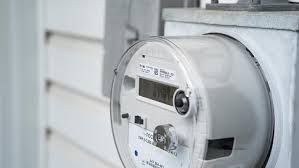Smart Electricity Meter Market attained a valuation of USD 11685.2 Million in 2023 and is anticipated to escalate to USD 22972.3 Million by 2032, exhibiting a robust CAGR of 7.80% during the forecast period from 2024 to 2032.The global energy landscape is undergoing a significant transformation, driven by the urgent need to enhance energy efficiency, reduce carbon emissions, and integrate renewable energy sources. At the heart of this transformation lies the smart electricity meter market, which has witnessed remarkable growth and innovation over recent years. This article delves into the key drivers, technological advancements, market dynamics, and future prospects of the smart electricity meter market.
Browse the full report at https://www.credenceresearch.com/report/smart-electricity-meter-market
Introduction to Smart Electricity Meters
Smart electricity meters are advanced metering devices that provide real-time data on electricity consumption to both consumers and utility companies. Unlike traditional meters, which require manual reading, smart meters use digital technology to measure and record electricity usage at frequent intervals. This data is then communicated to the utility provider via wireless networks, enabling better monitoring, management, and billing of electricity consumption.
Market Drivers
1. Energy Efficiency and Conservation: One of the primary drivers of the smart electricity meter market is the growing emphasis on energy efficiency and conservation. Smart meters empower consumers with detailed insights into their energy usage patterns, allowing them to make informed decisions to reduce consumption and lower their energy bills. For utility companies, these meters facilitate better demand management and grid optimization, reducing energy wastage and improving overall efficiency.
2. Government Initiatives and Regulations: Governments worldwide are implementing policies and regulations to promote the adoption of smart meters as part of broader smart grid initiatives. For instance, the European Union’s Third Energy Package mandates member states to ensure 80% of consumers are equipped with smart meters by 2024. Similarly, in the United States, the Energy Independence and Security Act of 2007 encourages the deployment of smart grid technologies, including smart meters.
3. Integration of Renewable Energy: The integration of renewable energy sources into the grid presents both opportunities and challenges. Smart meters play a crucial role in managing the variability and unpredictability of renewable energy generation. By providing real-time data on energy production and consumption, smart meters help balance supply and demand, ensuring grid stability and reliability.
Technological Advancements
The smart electricity meter market has benefited from rapid technological advancements, leading to the development of more sophisticated and efficient meters. Key innovations include:
1. Advanced Communication Technologies: Modern smart meters leverage advanced communication technologies such as 5G, LPWAN (Low Power Wide Area Network), and IoT (Internet of Things) to enable seamless and reliable data transmission. These technologies enhance the speed and accuracy of data collection and improve the overall functionality of smart meters.
2. Enhanced Data Analytics: The integration of big data analytics and artificial intelligence (AI) with smart meters has revolutionized the way energy data is analyzed and utilized. AI-driven analytics can predict consumption patterns, detect anomalies, and provide actionable insights, enabling utility companies to optimize their operations and enhance customer service.
3. Cybersecurity: With the increasing reliance on digital infrastructure, cybersecurity has become a critical aspect of smart meter deployment. Advances in encryption and authentication technologies ensure the secure transmission and storage of energy data, protecting against potential cyber threats and ensuring consumer privacy.
Market Dynamics
The smart electricity meter market is characterized by intense competition among key players, continuous innovation, and strategic partnerships. Major companies such as Siemens, Schneider Electric, Itron, and Landis+Gyr dominate the market, investing heavily in research and development to stay ahead of the curve. Additionally, collaborations between utility companies and technology providers are fostering the development of integrated solutions that enhance the overall efficiency and reliability of the grid.
Future Prospects
The future of the smart electricity meter market looks promising, driven by several emerging trends and opportunities:
1. Smart Cities Initiatives: The global push towards smart cities is expected to drive the demand for smart meters. These meters are integral components of smart city infrastructure, enabling efficient energy management and contributing to the sustainability goals of urban areas.
2. Energy Storage Systems: The proliferation of energy storage systems, such as batteries, necessitates advanced metering solutions to monitor and manage stored energy. Smart meters will play a vital role in optimizing the use of these systems, enhancing energy security and reliability.
3. Consumer Empowerment: As consumers become more environmentally conscious and tech-savvy, the demand for smart meters that provide greater control over energy consumption is likely to increase. Enhanced user interfaces and mobile applications will further empower consumers to manage their energy usage effectively.
Key Players
- ABB Ltd.
- General Electric
- Holley Technology Ltd.
- Elster Group SE
- Iskraemeco D.D.
- Itron, Inc.
- Landis+Gyr
- Schneider Electric SE
- Siemens AG
- Others
Segmentation
- Type of Smart Meters:
- Smart Electric Meters
- Smart Gas Meters
- Smart Water Meters
- Advanced Metering Infrastructure (AMI)
- Deployment Location:
- Residential Smart Meters
- Commercial Smart Meters
- Industrial Smart Meters
- Technology Segmentation:
- AMI Systems
- AMI Head-End Systems
- AMI Meter Data Management (MDM) Systems
- Prepaid Smart Meters
- Interval Meters
- By Region
- North America
- US
- Canada
- Mexico
- Europe
- Germany
- France
- UK.
- Italy
- Spain
- Rest of Europe
- Asia Pacific
- China
- Japan
- India
- South Korea
- South-east Asia
- Rest of Asia Pacific
- Latin America
- Brazil
- Argentina
- Rest of Latin America
- Middle East & Africa
- GCC Countries
- South Africa
- Rest of Middle East and Africa
- North America
About Us:
Credence Research is committed to employee well-being and productivity. Following the COVID-19 pandemic, we have implemented a permanent work-from-home policy for all employees.
Contact:
Credence Research
Please contact us at +91 6232 49 3207
Email: sales@credenceresearch.com

Leave a Reply
You must be logged in to post a comment.